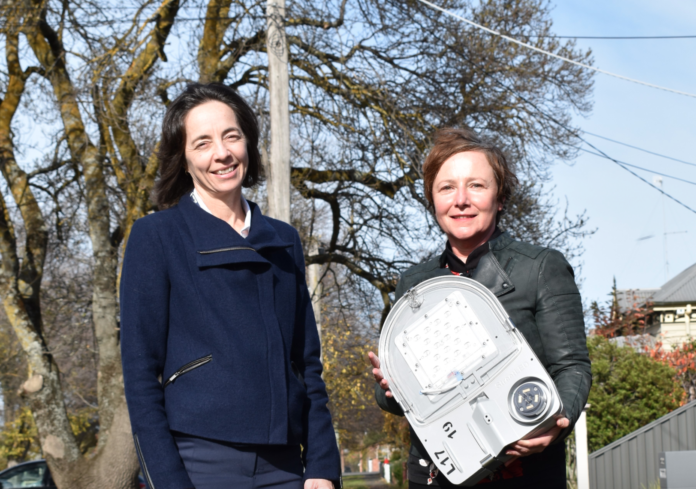The City of Ballarat will invest $2 million to install LED (light emitting diode) streetlights across the municipality’s minor roads network as part of the 2021/22 Draft Budget.
City of Ballarat Councillor, Belinda Coates said the change to LED streetlights was an example of Council taking action locally to demonstrate enhanced sustainability practices.
“The $2 million funding in our 2021/22 Draft Budget is a flagship action of the City of Ballarat’s Carbon Neutrality and 100% Renewables Action Plan and aligns with our strategic commitment to reduce greenhouse gas emissions and mitigate climate change ,” Cr Coates said.
“The new 17 watt LEDs are about 80 per cent more efficient than the old 80 watt mercury vapour lights which account for 95 per cent of the lights to be replaced.”
“This means better performance, significant energy and cost savings and reduced carbon emissions.”
She said the upfront investment – made up of $500,000 in 2021/22 and $1.5 million carried over from the current budget – will deliver an estimated $9.8 million in energy cost savings for Ballarat over 20 years, and a saving of 2,000 tonnes of greenhouse gas emissions each year.
Cr Coates said Council was continuously exploring ways to improve operations to reduce energy use and meet the community’s expectations on climate action and emissions reduction.
The 2021/22 draft budget includes a range of climate action and emissions reduction initiatives, including $250,000 towards the progression of a business case for a Materials Recovery Facility, $500,000 towards street trees to support Council’s long-term commitment to double the tree canopy across Ballarat by 2040 through the Urban Forest Action Plan, and $10,000 to begin development of a Net-Zero Community Emissions Plan.
Last week the City of Ballarat was announced as one of 46 Victorian Councils to sign on to the Victorian Energy Collaboration (VECO), the largest ever emissions-reduction project by local government in Australia.
The city’s facilities and streetlighting will be powered through the VECO project by clean energy from Victorian wind farms for the next nine and a half years.


